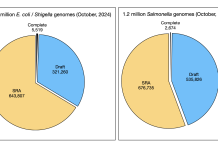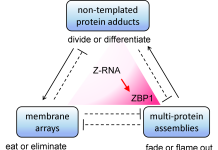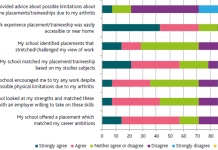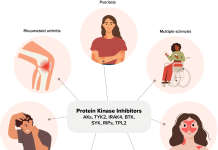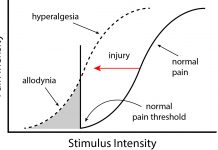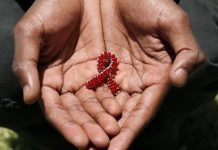Open Access Government produces compelling and informative news, publications, eBooks, and academic research articles for the public and private sector looking at health, diseases & conditions, workplace, research & innovation, digital transformation, government policy, environment, agriculture, energy, transport and more.
Home 2025
Archives
Saving lives from cardiovascular diseases in Africa
Professor Derek Yellon from the Hatter Cardiovascular Institute at University College London and Professor Mpiko Ntsekhe from the University of Cape Town discuss the increasing prevalence of cardiovascular diseases (CVD) in Africa and the associated treatment challenges.
Environmental surveillance as a sentinel for emerging outbreaks: Lessons from mpox in Africa
Here, various academic experts examine research on environmental surveillance as an early warning system for emerging outbreaks, focusing on lessons learned from Mpox in Africa.
3TR Project: Crossing disease borders to reshape European research
By utilising advanced technologies, the 3TR project aims to transform the understanding and treatment of immune-mediated diseases, with its core principles in precision medicine. Principal investigator, Marta E. Alarcon-Riquelme, explains.
Algae4IBD: A holistic approach to IBD treatment
The Algae4IBD project is exploring the untapped potential of algae and cyanobacteria to manage inflammatory bowel disease (IBD). In this exclusive Q&A, Dr. Dorit Avni, Research Group Leader explains how the team are creating innovative functional foods, aiming to improve quality of life and prolong remission for patients worldwide.
Unravelling NASH and insulin resistance: Insights from the department of human health and nutritional...
Open Access Government sits down with a researcher from the Department of Human Health and Nutritional Sciences to discuss their groundbreaking work on nonalcoholic steatohepatitis (NASH) and insulin resistance. Their research delves into the molecular underpinnings of these increasingly prevalent conditions, offering new avenues for understanding, prevention, and treatment.
Manufactured chemicals: A significant contributor to chronic childhood diseases
Pamela J. Lein from the University of California, Davis, discusses manufactured chemicals as a significant contributor to chronic childhood diseases.
Antibiotics in tuberculosis treatment: Impacts on the respiratory microbiome and the role of optimal...
The respiratory microbiome plays a crucial role in maintaining immune regulation. In this article, Dr Wilber Sabiiti emphasizes the need for optimized antibiotic dosing strategies to minimize harmful effects on the microbiome and improve treatment outcomes for patients with TB.
Revolutionising indoor air quality to stop pandemics with Germicidal Ultraviolet (GUV) technology
Indoor air quality is a silent public health crisis, harbouring pathogens that contribute to billions of illnesses annually. Addressing this requires urgent attention, and Germicidal Ultraviolet (GUV) technology offers a powerful solution to combat airborne threats.
Novel treatments offer hope for neglected tropical diseases
This interview with Professors Achim Hoerauf and Marc Hübner explores their groundbreaking work, focusing on the development of novel drugs and the importance of collaborative partnerships in tackling these devastating diseases.
Feline coronavirus and feline infectious peritonitis (FIP) – Russian roulette for your pet
Utilising Machine Learning on clinical datasets could help to crack the enigma of feline infectious peritonitis diagnosis.
E. coli genomes, big data, and messy biology
Here, David Ussery from the Department of BioMedical Informatics, UAMS, details E. coli genome diversity, big data, and messy biology. New methods, we discover, allow for the comparison of millions of bacterial genomes in a few days and the confident assignment of taxonomic clusters.
Cellular scaffolding: Crowdsourcing cellular responses in health and disease
In this article, Dr Alan Herbert discusses how different types of cellular scaffolds interact and impact the risk of diseases, citing the example of Z-RNAs pushing cells to inflammatory states in tumors and autoimmune conditions, setting the stage for new therapeutics.
Asbestos disease pathogenesis: The long and short of it
Jean Pfau and Kinta Serve explore a critical and novel hypothesis concerning the size of fibers in asbestos disease pathogenesis.
The impact of juvenile onset rheumatic and musculoskeletal diseases on education, vocation and employment
Professor Suzanne Verstappen discusses the impact and challenges associated with juvenile-onset rheumatic and musculoskeletal diseases when navigating education and employment.
The challenge of generating lasting mucosal anti-viral sterilising immunity
Achieving sterilising immunity is often challenging and sometimes even impossible. This article gives a glimpse into the concepts behind and highlights some recent advances and challenges.
Protein kinases for combating inflammatory disease
Julie Blaising, Discovery Project Leader in Immunology at F. Hoffmann-La Roche Ltd, tells us why protein kinases are an effective target for treating many chronic inflammatory disorders.
Symptomatic vs. Disease-modifying treatments in neurological diseases: Where next?
An optimal drug for chronic neurological disease would slow down disease progression in the long term, with short-term symptomatic benefits. This would shorten clinical development timelines and reduce the cost and risk level for drug developers. Henri Huttunen Chief Scientific Officer (CSO) at Herantis Pharma Plc explains.
Getting leptospirosis onto the lists of neglected tropical diseases
Leptospirosis is a globally important infectious disease, but neglected to the extent that it’s not on WHO’s or FDA’s neglected tropical diseases lists; this needs to change.
Therapeutic potential of the endocannabinoid system to treat chronic pain in inflammatory disease
Pharma researchers Julie Blaising and Philip Smith from F. Hoffmann-La Roche Ltd. discuss the endocannabinoid system as a pathway to treat inflammatory diseases such as Inflammatory Bowel Disease (IBD) and endometriosis.
Collaborative governance on big health problems in developing countries
Collaborative governance research may help tackle big health problems in developing countries, says Michael P. Ryan. Here, he explains how.











